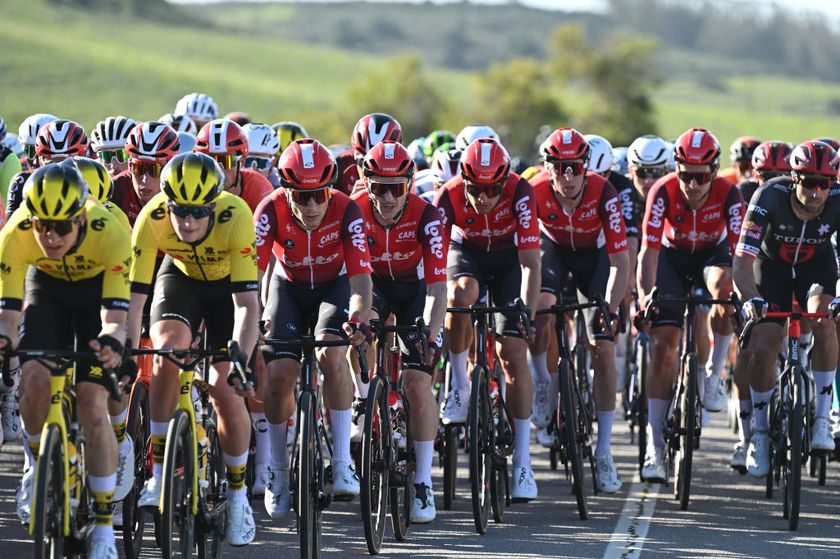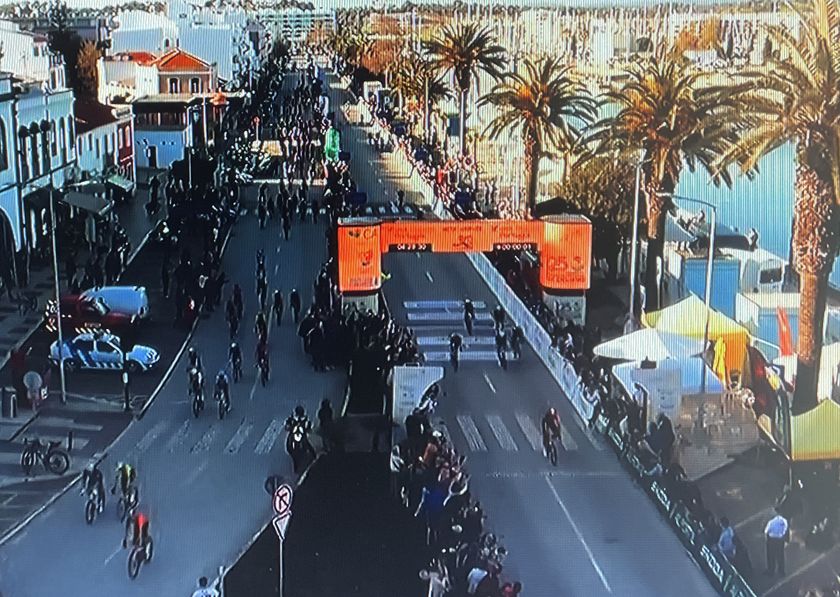Tour de France time loss due to bad luck not bad legs, says Nibali
'You just have to accept these things in cycling'





No two races are ever the same. A year ago, Vincenzo Nibali (Astana) seemed anointed against the usual pitfalls of the first week of the Tour de France, avoiding the crashes, punctures and ill fortune that bedevilled so many of his rivals.
Nibali’s calm amid all sorts of emergencies was such that when an even more frenetic opening act was heralded for this Tour, the consensus was that the defending champion would be the overall contender most likely to benefit.
That may yet be the case by the time he reaches the team time trial in Brittany next Sunday, of course, but as the race leaves the Netherlands, Nibali finds himself on the back foot after being caught on the wrong side of the split that defined the second stage.
The finale through the reclaimed land of the province of Zeeland was, as expected, prey to stiff gusts from the grey North Sea, but it was a crash in the peloton, rather than the crosswinds, that changed the complexion of Nibali’s day.
A group including Nairo Quintana (Movistar) had already lost ground when Nacer Bouhanni (Cofidis) fell in the front group with a little under 50 kilometres remaining. Nibali was not far behind the Frenchman, and though he was nimble enough to avoid crashing himself, he found himself on the wrong side of the split that ensued.
With Etixx-QuickStep piling on the pressure at the head of the race, the Nibali group haemorrhaged lost time, and a merger with the Quintana group behind did little to stem the flow. Nibali crossed the line 1:28 down on the stage, and in the overall classification he is now 1:09 down on Alberto Contador (Tinkoff-Saxo) and 1:21 behind Chris Froome (Sky).
“It was a miracle that I didn’t fall myself, but the group broke up after that crash and we were caught behind, niente,” Nibali said afterwards. “We were chasing all day, that’s it.”
Get The Leadout Newsletter
The latest race content, interviews, features, reviews and expert buying guides, direct to your inbox!
Nibali had Jakob Fulsang, Michele Scarponi and Andriy Grivko for company in the second group, but when he punctured with 25 kilometres remaining, none of them waited for him for fear that the chase would lose momentum. Instead, it was left to Nibali to bridge back up alone, with as much help from the race convoy as he dared to take.
“I was in front, I managed to stay upright but what more could I do. Then on top of that, I punctured,” he said. “We’re racing our bikes, these things happen.”
Usually as loquacious in defeat as he is in victory, Nibali’s frustration was palpable as he pedalled towards his team bus after the finish, though he checked his pace long enough to assure a RAI television crew that his had been a day of simple misfortune rather than a jour sans.
“No, fortunately it wasn’t a bad day in terms of legs,” Nibali said. “You just have to accept these things in cycling.”
Martinelli looks to Mur de Huy and pavé
After Nibali sought sanctuary aboard the Astana bus, it was left to directeur sportif Giuseppe Martinelli to appease the television crews who had gathered outside in the hope of a more detailed analysis from the Sicilian’s camp.
“To lose 1:28, it’s certainly a lot of time but there are still a lot of days to come, and tomorrow and the day after that, a lot of things could change,” Martinelli said. “This evening he’ll talk with the team about how to approach tomorrow, but it was a difficult day today. Tonight he’ll be disappointed but tomorrow his morale will already be better. He knows there’s a long way to go.”
Indeed, the beauty of the first week of this Tour is such that there are likely to be many more swings in momentum before the general classification picture starts to settle into a discernible shape after the team time trial. In theory, at least, Nibali ought to be to the fore on Monday afternoon, as the Tour enters Flèche Wallonne country and tackles the Mur de Huy.
“The Mur de Huy is certainly good for us and for Vincenzo,” Martinelli said. “I hope that tomorrow it goes well and he can stay in the thick of the action all day.”
The following day, the Tour returns to the cobblestones of Paris-Roubaix, the terrain where Nibali put such a weighty down payment on overall victory a year ago. Astana’s decision to eschew the Movement for Credible Cycling’s rules and keep Lars Boom in the team despite his low cortisol level in a pre-race test means that Nibali will not be lacking for support.
“I hope that with riders like Boom and [Lieuwe] Westra, he can make back the time he lost today,” Martinelli said.

Barry Ryan was Head of Features at Cyclingnews. He has covered professional cycling since 2010, reporting from the Tour de France, Giro d’Italia and events from Argentina to Japan. His writing has appeared in The Independent, Procycling and Cycling Plus. He is the author of The Ascent: Sean Kelly, Stephen Roche and the Rise of Irish Cycling’s Golden Generation, published by Gill Books.
Most Popular







